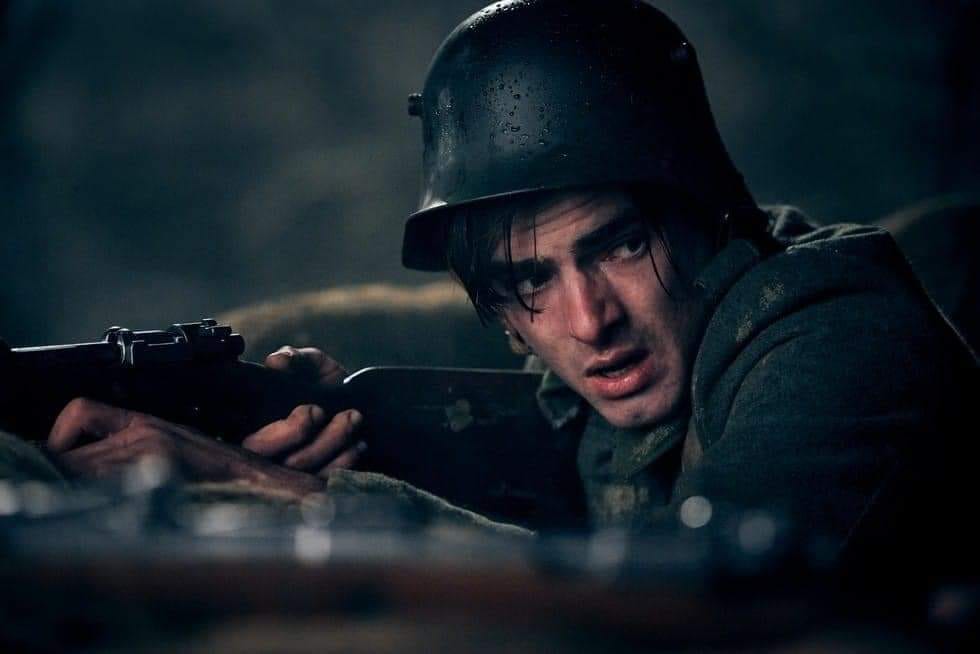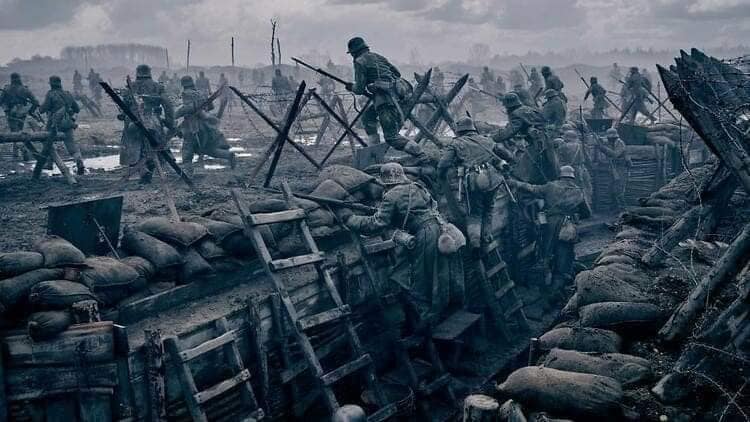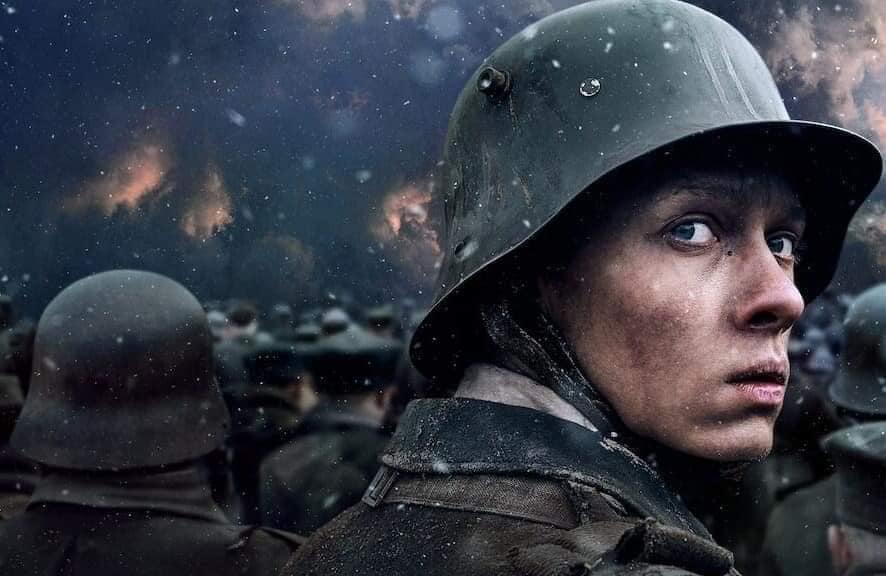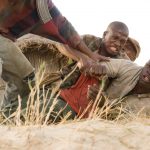“All Quiet on the Western Front,” is a poignant and harrowing depiction of World War I from the perspective of young German soldiers.

In the early summer of 1916, the world was engulfed in the fires of the Great War. For Paul Bäumer and his classmates, the idyllic days of youth in a small German town were abruptly replaced by the grim reality of the battlefield. Their dreams and aspirations were buried beneath the mud and blood of the Western Front, where hope was a fleeting visitor.
Chapter 1: The Call to Arms
Paul Bäumer, a bright and sensitive young man, had just turned eighteen when the call to arms resonated through his town. The patriotic fervor swept through the streets, fueled by the impassioned speeches of their schoolmaster, Kantorek. “You are the iron youth,” Kantorek declared, “ready to defend the Fatherland!” Enthusiastic and naive, Paul and his friends—Albert Kropp, Müller, and Leer—volunteered for the army, driven by a sense of duty and camaraderie.

Chapter 2: The Trenches
The harshness of their new reality hit them during basic training under the brutal Corporal Himmelstoss. The once vibrant boys were reduced to automatons, their spirits crushed by the relentless discipline. Yet, nothing could prepare them for the trenches. Arriving at the front, Paul and his comrades were greeted by the cacophony of artillery fire, the stench of decay, and the sight of dismembered bodies strewn across the battlefield.
Chapter 3: Brotherhood
In the midst of chaos, a bond of brotherhood formed among the soldiers. Katczinsky, an older, resourceful soldier, took Paul under his wing. Kat’s ingenuity in finding food and his philosophical outlook on life provided a semblance of normalcy amidst the horror. The soldiers shared everything—food, stories, fears—creating a family forged in the crucible of war.

Chapter 4: The Horror of War
The days blurred into nights as the incessant bombardment and constant threat of death eroded their sanity. Paul witnessed the gruesome realities of war—friends killed by shrapnel, men driven mad by the incessant shelling, and the agonizing cries of the wounded. He grappled with the futility of their sacrifice and the senselessness of the conflict. In one harrowing moment, Paul killed a French soldier in a shell hole and, as he watched the life drain from his enemy’s eyes, he realized the shared humanity that transcended the lines of battle.
Chapter 5: The Return Home
Granted a brief leave, Paul returned to his hometown, only to find himself a stranger in a place that once was home. The townsfolk, untouched by the horrors of the front, spoke of patriotism and honor, unable to comprehend the trauma etched into his soul. The disconnect between the front and home deepened his sense of isolation.












